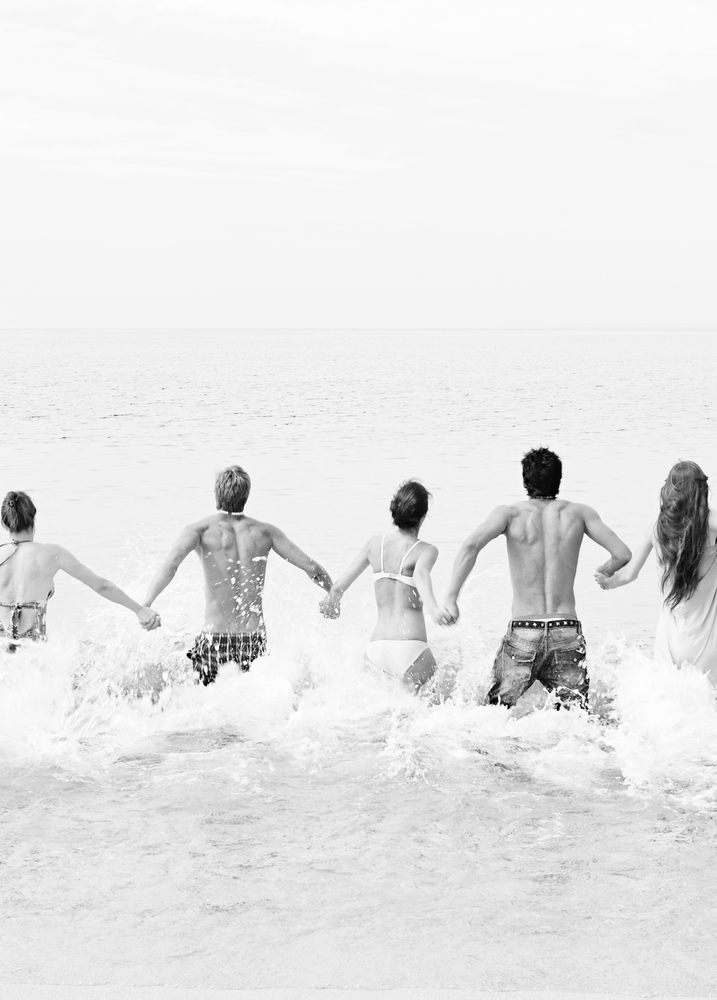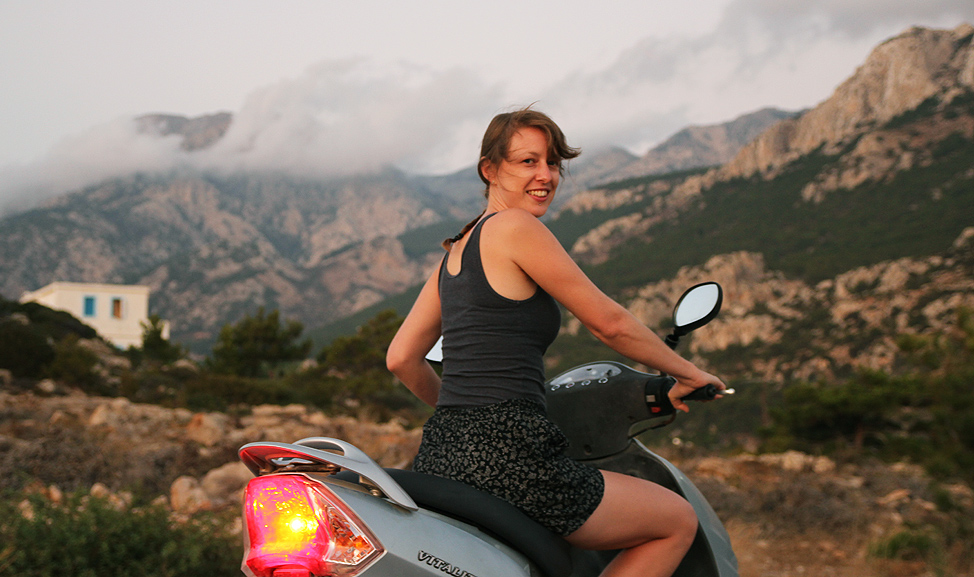Many of us dream of being set free by our work. By finding a profession that we love. To do something we’re excited about everyday. And most of all, to have the flexibility of a job that you can do anywhere.
But once you’re there, is it actually possible to achieve the balance needed to make it all work to plan and be happy?
Or is it just something that others claim to be able to do, when in reality it’s not so simple? As a ‘working traveller’ myself – I’m going to try and answer this question.
From my experience, there are 2 types of work & travel trips:
1. The “stay longer, work on and off” trip

In the past, during a longer trip I’ve managed to take a ‘holiday’ from work whilst travelling in more difficult places – where things like wifi are scarce or perhaps I’m on a boat. I’ve then been able to rebalance things by staying in the same place for a decent amount of time once I’m back in a more ‘civilised’ area, to catch up and focus on work (even if I’m still abroad).
This kind of trip is achieved with the complete separation of ‘work time’ and ‘travel time’.
For example, during our 4 months in Southeast Asia last year, I took almost 3 months off to visit Burma and some remote Indonesian islands, then spent 5 weeks in Thailand so I could find some stability and get out of ‘sightseeing’ mode and properly into the work headspace. Doing it this way, when I became settled in a new destination I developed a ‘routine’ of working full time during the week, and taking evenings off. I also found myself having ‘weekends’, which I’d use to do some proper sightseeing.
This works well, but is this really achieving ‘working traveller’ status where you are truly location independent? Wouldn’t you soon run out of money (and clients) if you continue to take time off?
Being the global gypsy that I am, I wanted to understand if it would also be possible to take work with me everywhere, without taking time off and forever missing out on more urgent projects. I wanted to weave it into the trip as if I were at home, without having to plan everything too thoroughly in advance.
I didn’t want to have to save travel just for the weekends, or have a strict and limiting routine. I craved the spontaneity of proper ‘backpacker’ travel. The kind where you follow your heart and experience as much as you possibly can.
2. The “unstructured, working continuously” trip

In theory, this is a fantastic idea – because you can travel for as long as you’d like, whilst making enough money to get by and fund your next move. You can change your mind whenever you like and continue moving, to wherever you are drawn.
On our recent 3 month trip through Hungary, Greece and Turkey – I decided to really put this to the test.
This time I took just 1 week off to attend a music festival. By the time we started island hopping around Greece, I had a lot of work to do. This is when we experienced snag #1. My partner (being work-free) wanted to keep moving.
We both had to make a compromise here, she was happy to stay a day or two extra in each place, even if she had already explored every nook and cranny, and I was happy to miss out on some things if had too much work on any given day.
It’s important to learn when you need to compromise work, social activities or travel to maintain a good balance and keep on top of things.
So how did it work?
PROS of working continuously while travelling:
- You learn to work much more efficiently and with higher productivity. Any old procrastination habits go out the window. This is because you know that your reward for finishing your immediate task – every day – is to be able to explore your current location.
- The ‘why not?’ spontaneous moments that make you feel alive. Living day-to-day (and having the income to do so) without too much of a plan meant that when we finished island hopping in Greece, we decided to catch a ferry to Turkey. We hadn’t even planned to go to Turkey but it was only 5 miles away from where we were at the time. Why not?
- You become a master of your ‘zone’. Being able to switch into the work zone can take practice, especially when your work is creative. Switching out of it is equally as difficult. Through dedication, you will learn your best and worst times of the day, how to make a routine within chaos, and how to let go of work when you are doing something else. All very healthy habits for a happy life.
CONS of working continuously while travelling:
- You tend to neglect all other low-priority work tasks that don’t provide immediate gains (your pay!) – such as marketing, blogging, volunteer work etc. This can mean that when/if you do eventually go back to reality, your website is outdated and you feel a bit guilty about neglecting other things you care about, like a particular cause or agenda.
- It’s almost impossible to separate your two selves completely and comfortably – to be a dedicated and reliable provider for your clients one moment and then a super-fun backpacker doing tequila shots in a bar the next. You will have to decide what’s most important to you at the time, and it’s often the least fun option.
- No matter how much you love what you do, and unless you are a zen master, you WILL develop aversion to your work at times – especially when everyone else is canoeing down a river or swinging in a hammock. But you MUST come to terms with this and just get on with it if you want to feel like it’s all worth it. When this happens, just remember what you could be doing instead (the daily grind), and thank your clients for being so wonderful and supportive of your lifestyle and the aversion will fade.
Conclusion
If you’re a working traveller, you can’t escape work like you can when your life is structured. Without the separation, you often feel like you’re always on call. There is no holiday away from your holiday when it all gets too much.
But if you’re unconventional enough to live your life like this, then there’s no doubt you’ll love overcoming, or learning not to be bothered by any small hurdles you have to face.
After all, every day feels like a weekend. And every morning will bring a new sense of discovery and reckless abandon, no matter how much work you have scheduled in.

Sure, you might go to sleep in a tiny village hut in northern Thailand thinking about whether or not you remembered to change the font before sending another proof – but in the morning you will still wake up in a tiny village in Thailand, and know that you are truly living.
Leave a Reply